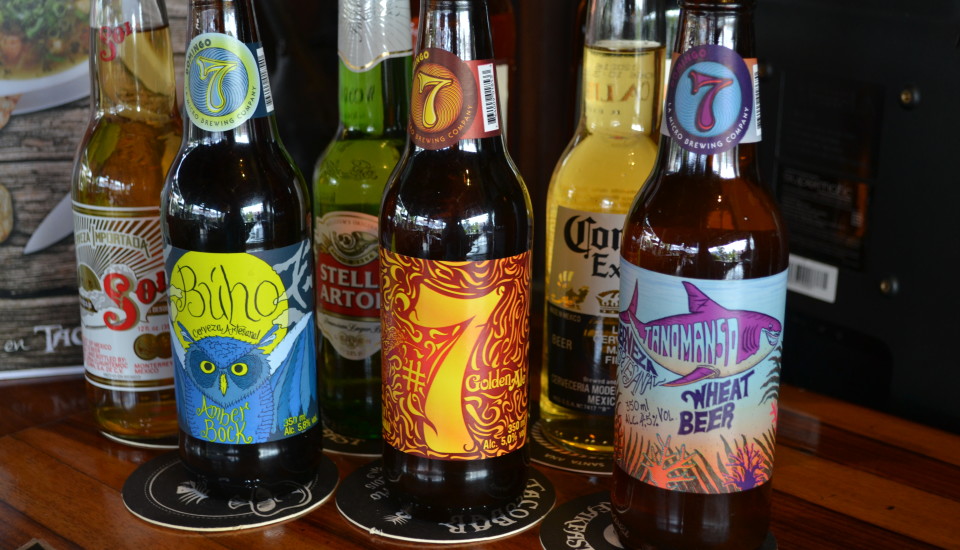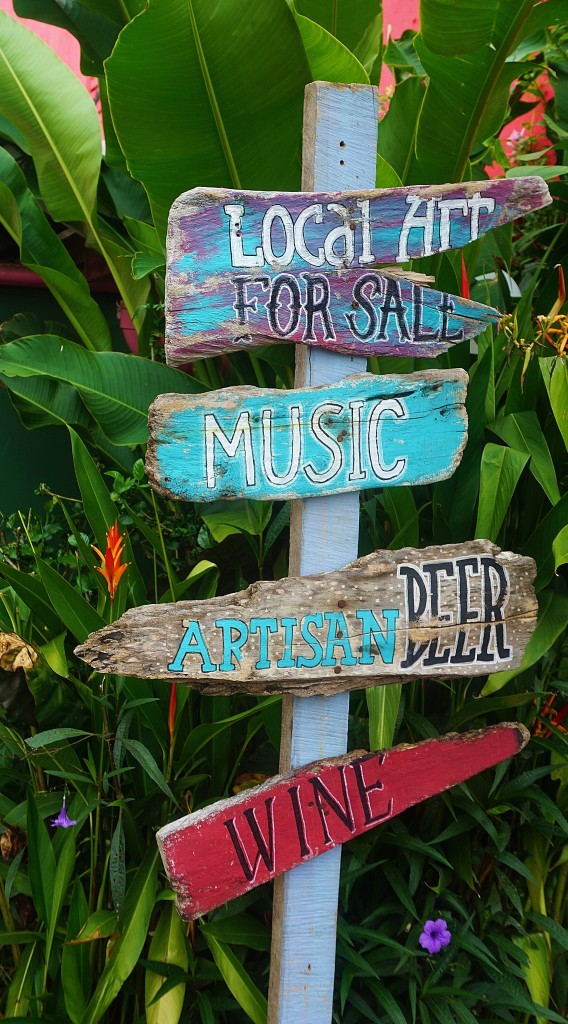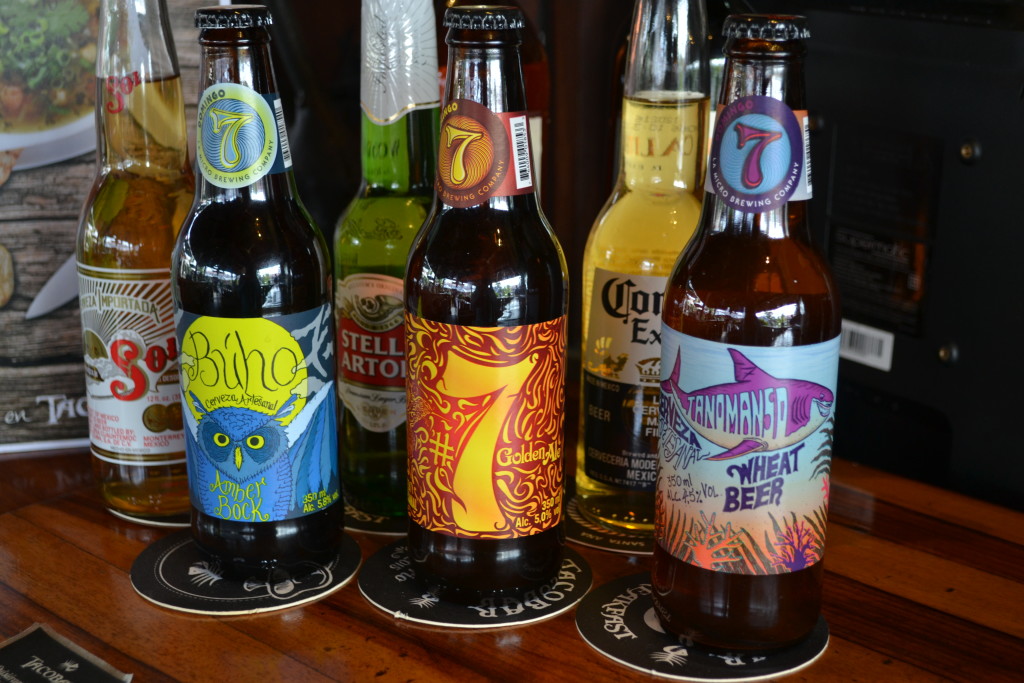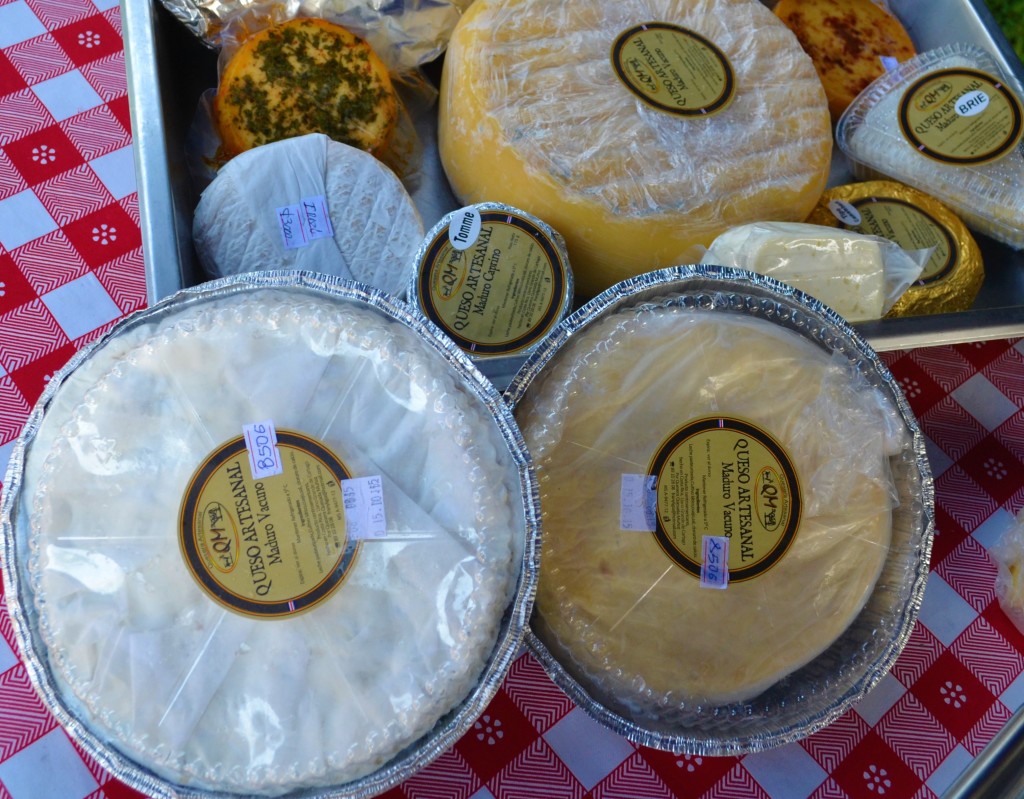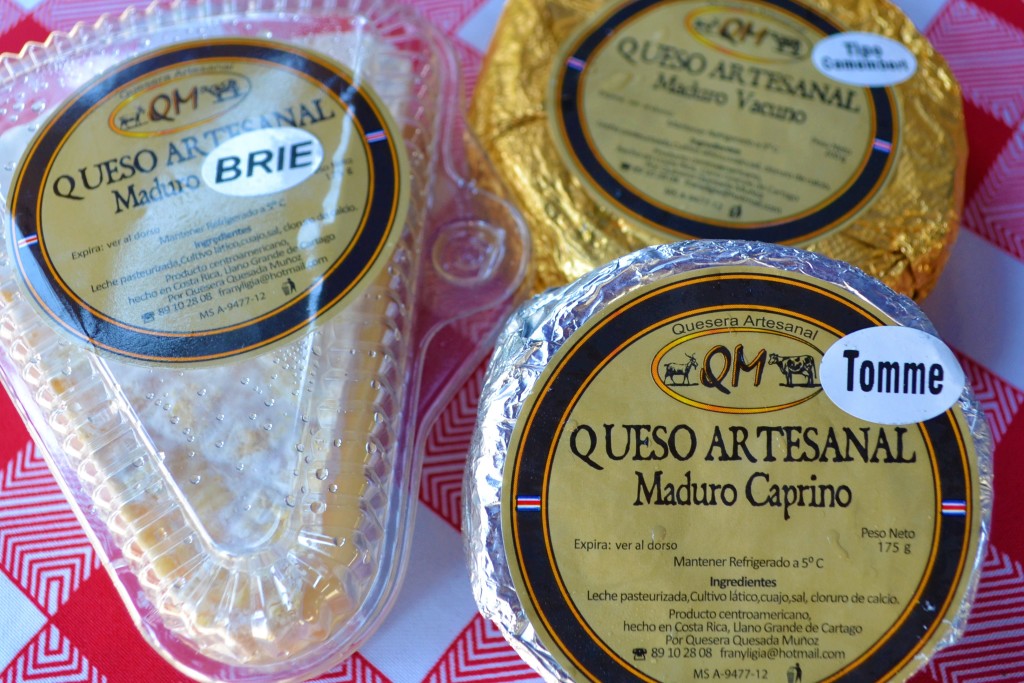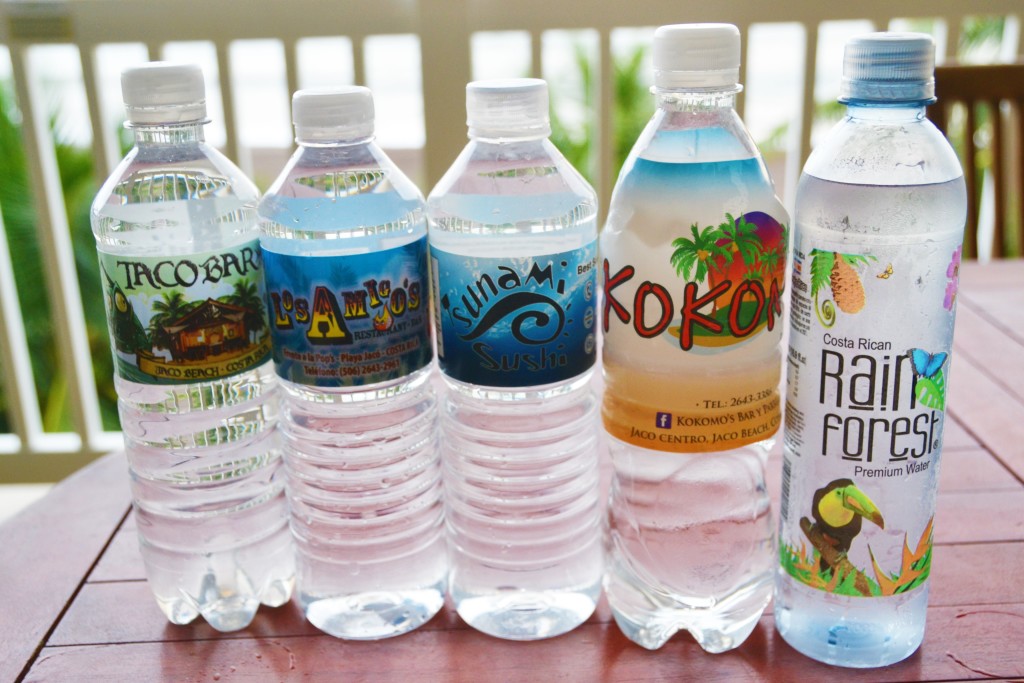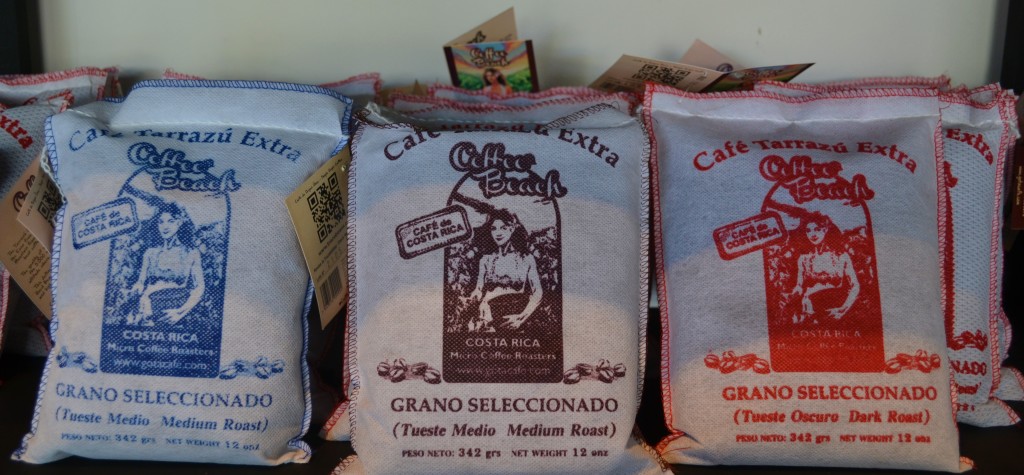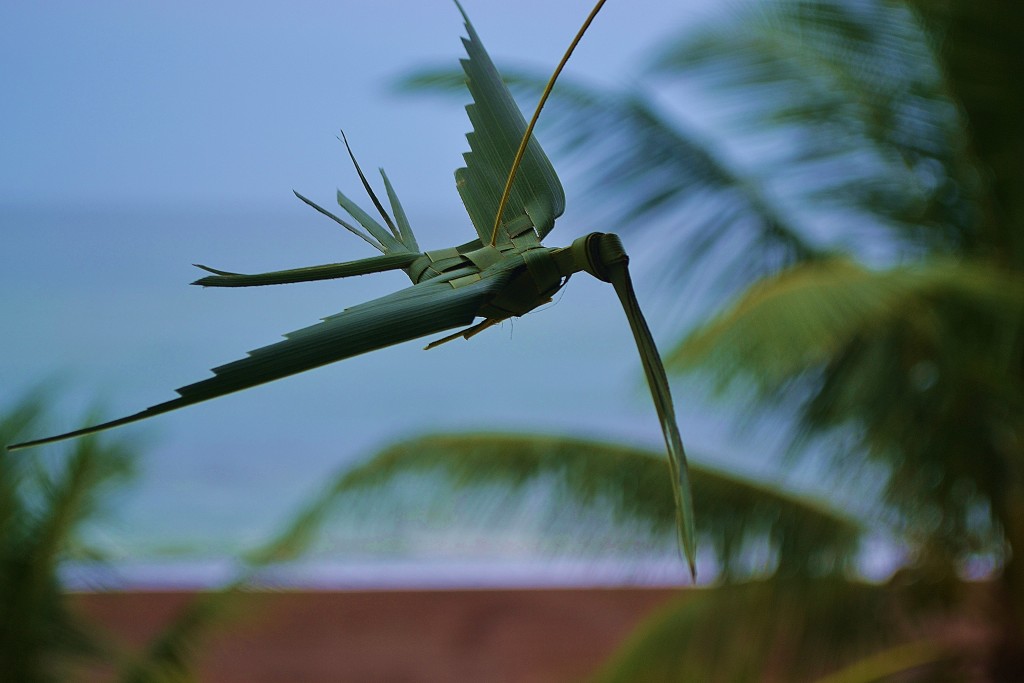Only second to all things “eco” in Costa Rica, comes all things “artisan.”
Artisan beer is a term freely flung about in Costa Rican bars. While micro-brews are classified as no more than 460,000 gallows produced annually and craft beers are classified as having no more than 2,000 gallons, no one I spoke to seemed to knew how to define what an artisan beer is. Since craft brewing seems to follow selective brewing standards, I can only assume artisan beer is its wilder, freer, rule-breaking younger brother. In other words, the beer made in the back room of bars, with great labels created by the brew master’s live-in gf. The tourists believe they are on the cutting edge of beer-voyeurism and the bar keeps more colones in their coffers–everyone’s happy, tourism at its symbiotic best.
To have some artisan nibbles to go with your artisan beer, one needs only go to the weekly Jaco market. The first booth on the right had artisan cheese. When I went up to the table, it was empty. I asked if she had any left and she replied, of course. She went to her car and took her special treasures out of a cooler. Artisan cheese is clearly too good to be displayed on the table like the average cheeses. When I asked the vendor is artisan cheese is, she replied with two words, “It’s better.” She smiled as she confidently handed me a sample as if to imply, try a piece and you’ll understand. Her cheese was delicious, so who was I to argue with the artisan price.
Then there’s artisan water, bottled by the restaurants who sell them. Is this tap water with special labels sold at bottled water prices? We’ll never know now, will we.
Impress your friends with the gift of artisan Costa Rican coffee. If they ask what makes it artisan, tell them it’s a closely guarded national Costa Rican kept secret, that no one there knows either.
In case you want a little company while enjoying your artisan beverages and nibblies, for a few colones you can be joined by a origami palm leaf macaw, artisan made, of course.
